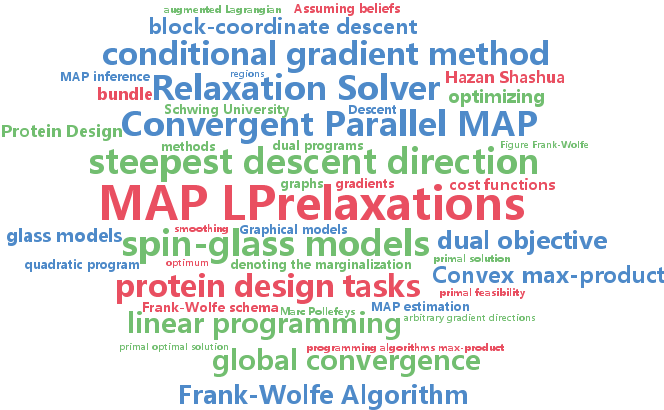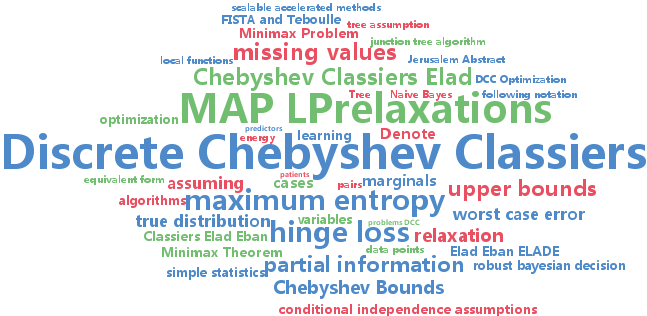map lprelaxations
-
Alexander Schwing and Tamir Hazan and Marc Pollefeys and Raquel Urtasun
Globally Convergent Parallel MAP LP Relaxation Solver using the Frank-Wolfe Algorithm (pdf)
While MAP inference is typically intractable for many real-world applications, linear programming relaxations have been proven very effective. Dual block-coordinate descent methods are among the most efficient solvers, however, they are prone to get stuck in sub-optimal points. Although subgradient approaches achieve global convergence, they are typically slower in practice. To improve convergence speed, algorithms which compute the steepest $\epsilon$-descent direction by solving a quadratic program have been proposed. In this paper we suggest to decouple the quadratic program based on the Frank-Wolfe approach. This allows us to obtain an efficient and easy to parallelize algorithm while retaining the global convergence properties. Our method proves superior when compared to existing algorithms on a set of spin-glass models and protein design tasks.
-
Elad Eban and Elad Mezuman and Amir Globerson
Discrete Chebyshev Classifiers (pdf)
In large scale learning problems it is often easy to collect simple statistics of the data, but hard or impractical to store all the original data. A key question in this setting is how to construct classifiers based on such partial information. One traditional approach to the problem has been to use maximum entropy arguments to induce a complete distribution on variables from statistics. However, this approach essentially makes conditional independence assumptions about the distribution, and furthermore does not optimize prediction loss. Here we present a framework for discriminative learning given a set of statistics. Specifically, we address the case where all variables are discrete and we have access to various marginals. Our approach minimizes the worst case hinge loss in this case, which upper bounds the generalization error. We show that for certain sets of statistics the problem is tractable, and in the general case can be approximated using MAP LP relaxations. Empirical results show that the method is competitive with other approaches that use the same input.

